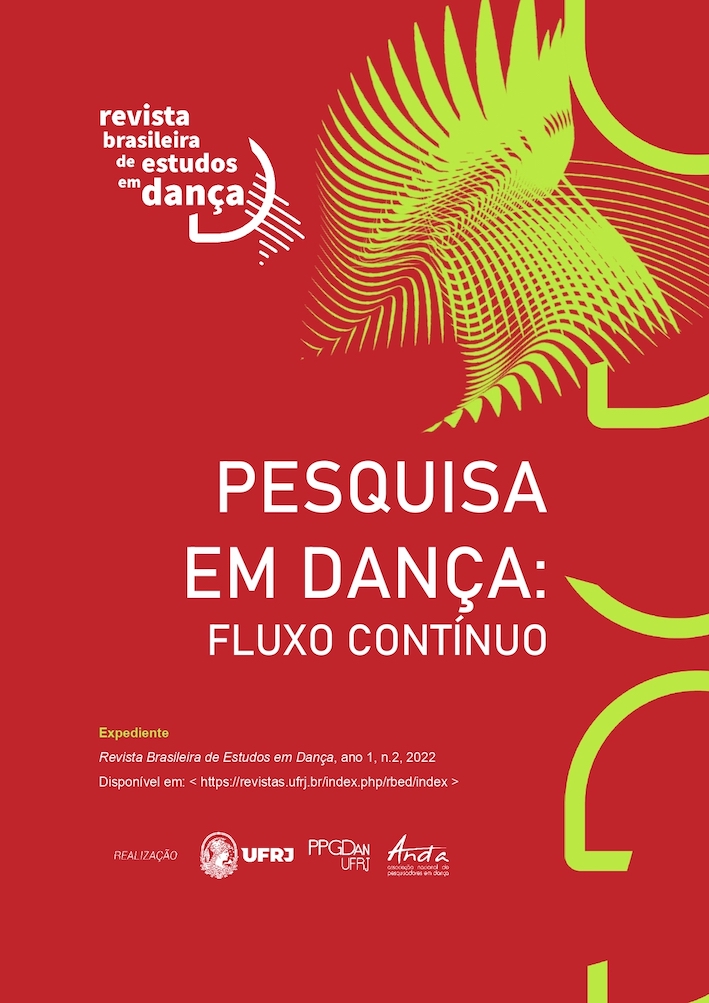Perception of the dancers' sensations in online classical ballet classes in Brazil during the Covid-19 pandemic
DOI:
https://doi.org/10.58786/rbed.2022.v2.n2.52407Keywords:
sensações, ensino-aprendizagem, ballet, aulas on-line, pandemiaAbstract
The Covid-19 pandemic affected the education of many dancers and teachers worldwide. The abrupt transference from face-to-face to remote teaching through various online communication platforms impacted their ways of sensing. This research investigates the sensations of dancers from different parts of Brazil during their learning process in intermediate-advanced online ballet classes and their relationship with the construction of their corporeality. We carried out a qualitative study, with ethnographic and autoethnographic sources (observation, participation, interviews and videos). Dancers in remote ballet classes reported feeling challenges and opportunities concerning their perceptions of seeing, hearing, touching and feeling kinaesthetically. Most dancers considered positive benefits to their mental and physical health from socialising with their peers and from dancing and learning continuously. These classes challenged the dancers' sensoria and served as an extra resource for their knowledge of dance.
Downloads
Published
Versions
- 2023-11-30 (3)
- 2023-11-30 (2)
- 2022-12-30 (1)
How to Cite
Issue
Section
License
Authors who publish in the Revista Brasileira de Estudos em Dança are
responsible for the content of signed articles and retain copyright.
They grant the journal the right of first publication with the work simultaneously
licensed under the Creative Commons Attribution-NonCommercial 4.0 License
(Open Archives Initiative - OAI). This feature, used for open-access journals,
allows sharing work for non-commercial purposes and acknowledges
authorship. If the text is later published in another vehicle, the author
must inform that it was initially published as an article in the Revista Brasileira
de Estudos em Dança. Therefore, even if the journal owns the first publication,
authors are entitled to publish their work in institutional repositories or on
their personal pages, even if the editorial process has not been completed.
The journal reserves the right to make normative, orthographic, and grammatical changes to maintain the language standard, respecting the authorial style.

